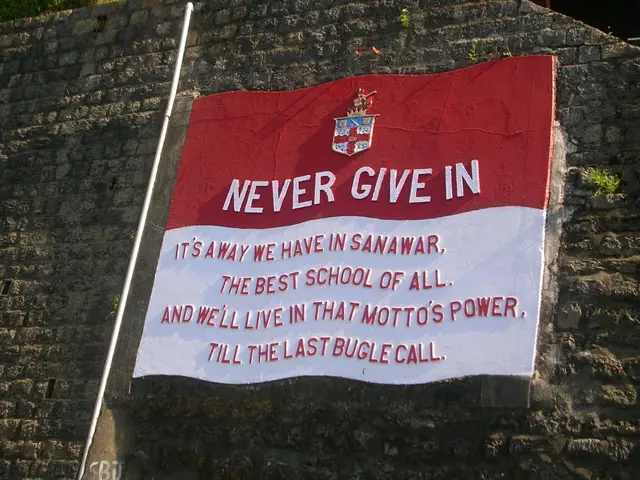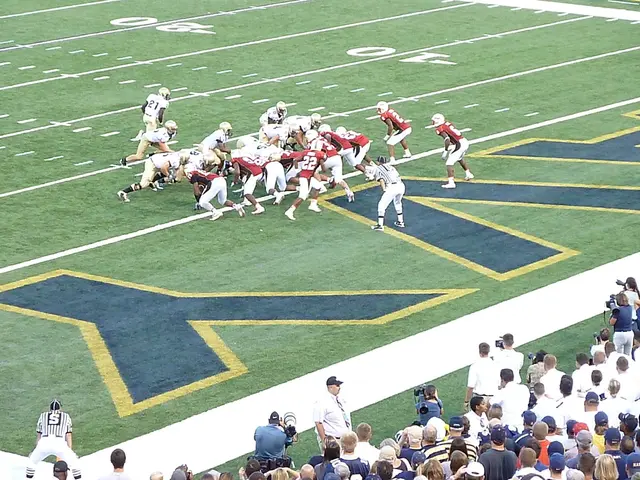In Question: Loss of Faith Among Attorneys Regarding the Rule of Law
In the vast expanse of the modern political landscape, some compare the tactics of the Trump administration to the Serengeti, a metaphor that suggests a world where there's never been a rule of law and good faith is not expected. This stark contrast to the principles of justice is echoed in the actions of El Salvador's president, Nayib Bukele, who responded to a court's demand for due process with a casual "Oopsie. Too late."
This troubling trend is not unique to the United States. In his third year of practice, author Gabriel Urza found himself representing a man named Mr. R, accused of Driving Under the Influence and undocumented. The integrity of the legal system, Urza believes, relies on the good faith of its executors. In this case, what the prosecutor had done was illegal, and Urza filed a motion for "vindictive prosecution," which he won.
The judiciary and the Trump administration seem to be locked in a game of constitutional chicken, a dynamic that has historical precedents. The response of Trump and Bukele to the courts' demands for due process mirrors President Andrew Jackson's response to an adverse Supreme Court ruling in 1832 during the Nullification Crisis.
In 1832, South Carolina, led by Vice President John C. Calhoun’s theory of nullification, declared federal tariffs unconstitutional and refused to enforce them. President Jackson, a staunch nationalist, saw nullification as a crisis threatening the Union. He rejected Calhoun’s stance and the state's defiance, and through the passage of the Force Bill, authorized the president to use military force to enforce federal tariffs in South Carolina.
This historical episode has important implications for the contemporary judicial system and presidential responses to court rulings. It indicates that presidential enforcement of court decisions relies not just on judicial pronouncements but also on executive willingness and political power to uphold them. The president can use legislative and coercive means to compel compliance with federal law when states resist, thus reinforcing federal judicial authority indirectly.
Some law firms are litigating the unlawful executive shakedowns, with white shoe law firms such as Paul, Weiss, Rifkind, Wharton & Garrison and Skadden, Arps, Slate, Meagher & Flom exhibiting a loss of faith in the rule of law when confronted with the Trump administration's strongarm tactics. University counsels are beginning to realize that they have a common cause and strength in numbers.
Urza's experience as a young public defender taught him that justice can't exist in the face of raw power, but to concede this is to prove the bad actor's point. He empathizes with federal judges who are faced with the task of enforcing the rule of law, at the risk of delegitimizing it entirely. The author believes that the rule of law requires that we believe and act like it exists, even in the face of raw power.
In a new case, Kilmar Abrego Garcia's, the prosecutor opposed the release and contacted ICE to request that Mr. R be investigated for an immigration violation. Despite this, federal judges are standing firm in the face of intimidation campaigns by the Trump administration. Mr. R had been in jail for 153 days, and Urza asked the court to release him on his own recognizance under strict court supervision. However, a day later, ICE had placed a detainer on Mr. R, meaning he wouldn't be released from jail pending the adjudication of his case, and when it was over, he would be deported.
Urza equates the current situation in the American legal system to the "Tinkerbell" moment, where its existence requires that we believe in it. The author's latest book, "The Silver State," available from Algonquin Books, delves deeper into these themes and his experiences as a public defender. As we navigate this modern-day "Nullification Crisis," it is crucial to remember the importance of the rule of law and the role each individual plays in upholding it.
War-and-conflicts and policy-and-legislation are evident in the ongoing conflict between the courts and certain executives, like the Trump administration and El Salvador's President Bukele, who seem to question the rule of law. The general news, crime-and-justice, and politics intertwine in this power struggle, as legal professionals and university counsels acknowledge the need for solidarity and strength in numbers to uphold the rule of law amidst intimidation and raw power.








